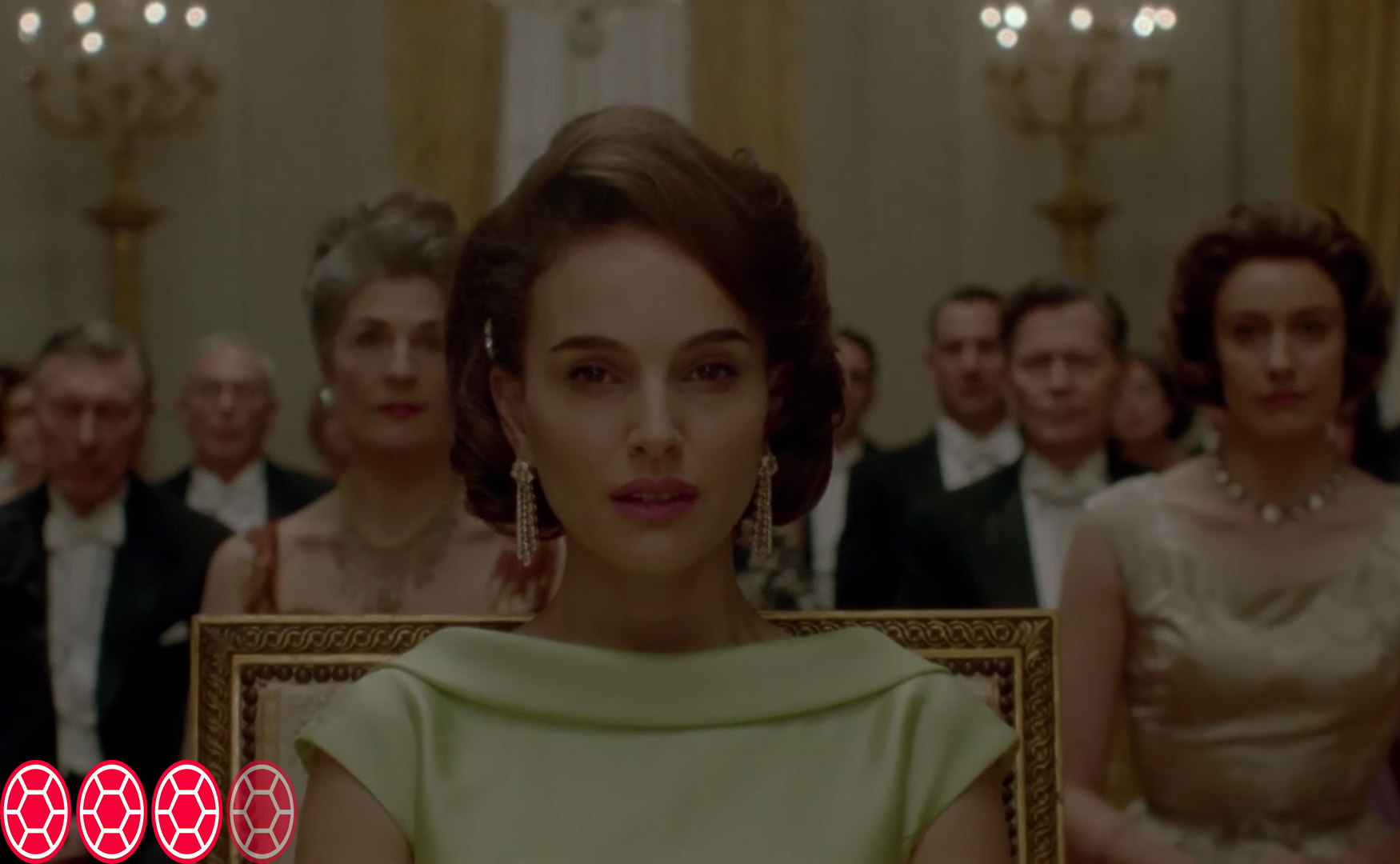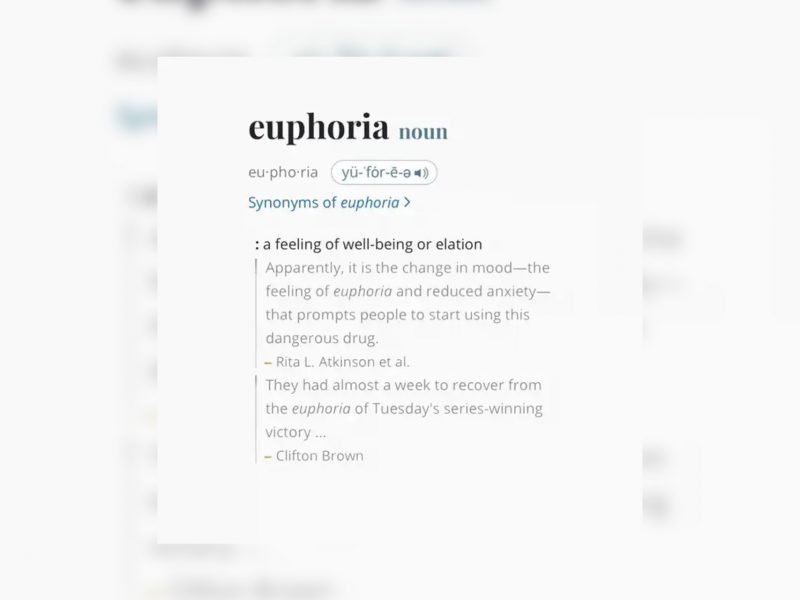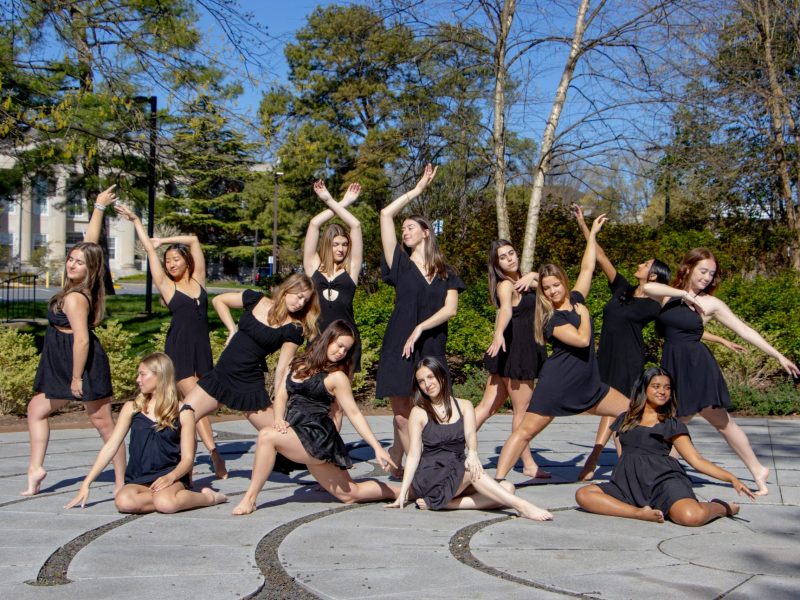By the time I got to the screening of Jackie, the only seats left were in the nearly-empty first two rows, where the film’s grainy look was even grainier and the screen’s already-blurred corners were dark and out of focus.
But in the first act of Pablo Larraín’s Jackie Kennedy biopic — a whirlwind segment that follows the beloved first lady in the minutes following her husband’s death — my distorted, unclear view only added to the chaos unfolding on-screen. As the camera sways in a perpetual close-up, moving jaggedly from distraught face to distraught face, Jackie Kennedy (Natalie Portman) wipes blood from her perfectly painted face, watches Lyndon B. Johnson take her husband’s place and asks questions, her already hyperactive mind working overtime to make sense of her situation.
Portman doesn’t play one character in Jackie — she plays many. There’s the Jackie the country knew from her famous 1962 tour of the White House (recreated impeccably here), with her plastic yet somehow warm smile and overly-pronounced accent. There’s the behind-closed-doors Jackie, destroyed by her husband’s death but hell-bent on celebrating his life, his personal shortcomings aside. And there’s the Jackie featured in the film’s frame, an interview with Theodore H. White (Billy Crudup), where she appears both fragile and harsh, obsessed with crafting her husband’s legacy.
In just more than 90 minutes, the film mines the depths of Jackie’s character for the drama missing from textbook accounts of the Kennedy assassination, which is no easy task. It’s difficult to make a riveting movie from a story everyone in the audience already knows. But Jackie does; the dizzying cinematography and gut-wrenching score are as glamorous and tragic as you’d expect from a movie about the Kennedys. The film’s biggest strength, though, is that it manages to lend humanity to characters pulled from the pages of history,
“A first lady must always be ready to pack her suitcases, it’s inevitable,” Jackie proclaims in a moment of tragic clarity.
There’s a lot of that in the film: seemingly clear-minded statements about legacy, truth and character made by the film’s permanently blurry-eyed protagonist. Jackie Kennedy is a woman as focused on the future as her husband was. But while JFK pondered the future of the nation, after his death, his wife was laser-focused on the future of her husband’s name — which, for the time, anyway, was her own, too.
“Do you know who James Garfield was?” she asks the driver of a hearse as she sits in the back with her husband’s coffin.
And it’s as much a question for the audience as it is for the driver: Do you remember Garfield? How about McKinley? Lincoln?
Do you remember who Kennedy was?
Although Jackie is very much a movie about the former first lady, it’s also a film about the presidency. It explores the idea of what makes a good president and, maybe more importantly, what makes a good person. JFK’s rumored immoralities are briefly mentioned, but swept away in the turmoil of his death. And as soon as that part of John F. Kennedy, husband and president, leaves Jackie’s mind, she replaces it with the fantasy of Camelot — that the Kennedys had transformed America into a beautiful place of magic and majesty. And, as Portman’s performance powerfully proves, it wasn’t just about her husband. Jackie needed the world to remember. She needed.
“It wasn’t for Jack,” she confesses toward the movie’s end, after the now-famous funeral procession, “it was for me.”
3/4 Shells



